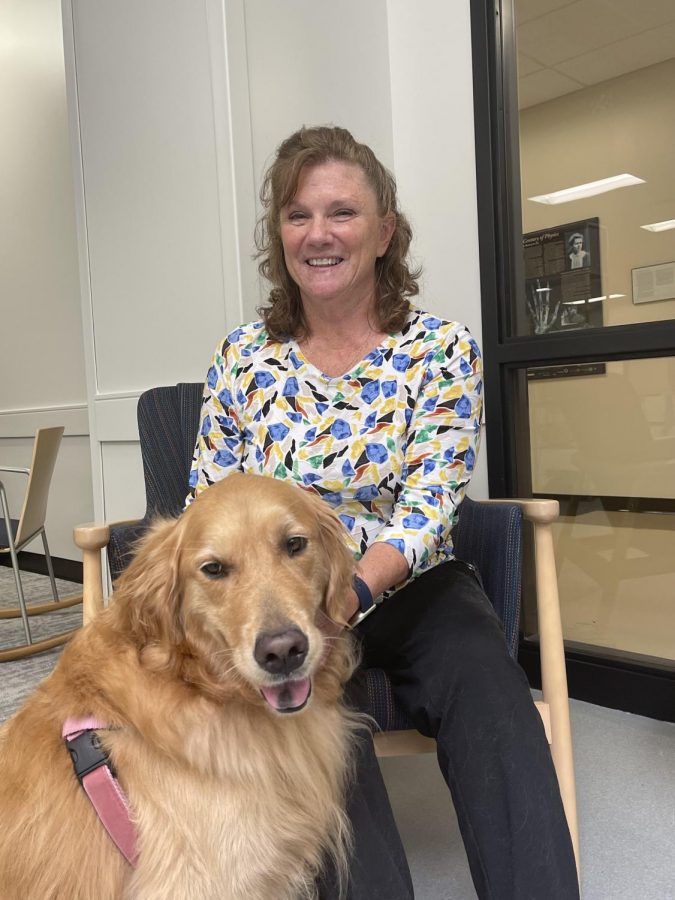What if Labor Day Really was the Official End of Summer?
Mrs. Brown sits in the Hub while petting Millie. She enjoys having Millie back for the students.
I stood staring sadly at sets of golden door handles that opened to bustling halls. This was not on my agenda on a nice day that, seasonally, qualifies as “summer”. Why was I dreading school when kids in Kenya are longing to learn to read? Was it my own naïve selfishness? Probably. But another factor was that this year, I decided that summer breaks, (though they are actually the same amount of days each year,) have been seemingly dwindling like an ice cube on a barbeque rack. If summer feels shorter, it may be because I’m trying to do more with them. Maybe I could use more time.
The benefit of the current school year length is that it can improve a student’s academics. The upside of a longer summer, (potentially from Memorial Day to Labor Day) is that it would give students more time for things they normally can’t do during the school year. While some teens may spend warm summer days watching TV, or sleeping until noon, many kids can find meaningful things to do during the break. Summer is valuable time to participate in mission work, go to camps, get to know friends, and simply reflect, think, and create. This from the structure of school helps students to grow dynamically, experience new things, and come back to school refreshed and ready. Summer seminar is a great program that probably would not exist if it were not for time off of school. Given its success and value I think it’s worth exploring the possibility of starting the school year later. It doesn’t take much time to hear many examples of summers well spent.
One student went on a mission trip to Alaska. Another started a recycling program at a school. Some traveled to the inner city of another state to minister to kids and one attended leadership seminars. A student volunteered at a camp for children with special needs while another led a small group on dealing with grief. One participated in work projects with their church. Several students walked 21 miles with their youth group in one day to collect school supplies for a school in need. One student said she learned more in a few weeks doing missions over the summer, than over the entire school year. Sharing the gospel with a little girl, who has never prayed before, is life-changing once you stop biting your tongue and push the first words out. We can do so much for the hurting, hungry, and hopeless, if we would only try. Summer gives us that chance.“Changing the world” is not a part-time hobby, nor should it be treated like one. We’ve been told it’s our generation’s full time duty. Changing our schools and responding to needs there are very important. Likewise, summer break provides time to think about and act upon what else we could be doing to help others, or enrich our lives with activities like the ones mentioned already. It is often difficult to find time during the school year for this. I’m convinced that God will still do the impossible, even in people like us.
People might argue that going to school will keep teenagers out of trouble. In some cases, this could be true. But at the heart of this statement is a stereotype, a cruel limitation and label people assign to teens. Unfortunately, we sometimes prove these people right. What would it take to prove them wrong? What would it take to spend a summer helping at a charity event, willingly babysitting siblings, or being honest with your friends? It could take more time. I would appreciate a chance to grow in my being and person. Overall, the stereotypes mislabeling of students is dangerous and should be eradicated.
“I have a dream…” said Martin Luther King Jr, African American Activist.




